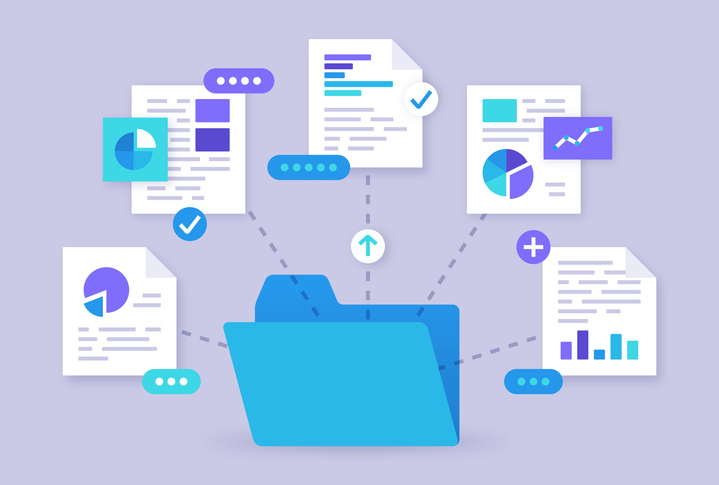The environmental threat of single-use plastics is something we are all aware of. From documentaries on the topic, to the introduction of wooden cutlery in restaurants, single-use plastic was exposed as a threat to wildlife and our planet. As individuals and as businesses, we made reusable water bottles trendy and plastic straws less commonplace.
But there is another hidden crisis facing enterprises today: single use data. That’s where being frugal with your data comes in – more on that in a minute.
The data conundrum
At NetApp, we define single use data as the data that is created once by enterprises – such as emails, attachments, even GIFS – but stored forever. That data is never used again, it just continues to consume energy in storage and therefore impacts the environment. This is accelerated in the age of AI, as businesses are rapidly increasing the data they create, consume and store.
However, we now know that masses of data isn’t required to fuel AI. The importance doesn’t lie in the quantity, but the quality. Data must be clean, organised and connected to be ready for AI. For that to happen, businesses don’t have to hoard data, they can adopt a frugal first mindset without limiting the potential of their AI solutions.
On top of this, it’s undeniable that the UK, amongst other countries, is keen to lead in AI creation and usage, (our recent research found that 34 per cent of UK respondents ranked themselves as the likely leader in AI innovation over the next five years) encouraging enterprise investments into the advanced technology. Yet, there’s not just one way to ‘do’ AI.
With the environment firmly in mind, tackling both single use data while implementing a frugal strategy to AI means business can use less data while not compromising on their AI ambitions. Recent NetApp data actually found that the majority (85 per cent) of UK IT leaders know that data management can help reduce their carbon footprint. So why aren’t they adopting an alternative approach to AI that uses less data? Surely that is key to reducing emissions and allowing businesses to balance their lofty AI ambitions while meeting their green goals?
The hidden cost of data
Let’s start with the root cause. AI is undeniably causing an unprecedented demand for data. Our research uncovered that most IT leaders expect their data estates to grow 41 per cent to accommodate these AI ambitions. That’s a significant amount of data, energy and ultimately money. What’s less recognised here, is the unbelievable existing size of many data estates today. These already house years of enterprise data, much of it already unused, unorganised and unnecessary.
Such AI growth strategies could easily signal a rise in single use data, as businesses focus on collecting more data at all costs regardless of its genuine long-term usefulness for their tools and technologies. Not only could businesses have to shell out more cash to store the unneeded data, and increase their waste carbon emissions, but the success of their AI initiatives themselves could also be threatened.
It’s well known now that data is the fuel, and AI is the engine. The cleaner the fuel, the greater the impact on the engine. Quality data will bring quality insights. Data for the sake of data could bring AI results that take more time to sift through for actionable results than actual success.
That’s where a considered data management approach comes into play. This will distinguish those AI solutions that will succeed, and those that will fall flat. A planned and strategic approach to data growth will ensure that the data businesses do store is organised and can be used more effectively.
By being more selective with the data included in language models, businesses can better control their carbon emissions, limiting energy to be spent on the most important resources. In healthcare, for example, separating the most up-to-date medical information and guidance from the rest of the information on that topic will mean safer, more reliable and faster responses to patient treatment.
Being frugal is the way forward
It’s been a few years since the classic slogan ‘reduce, reuse, recycle’ was stuck in my head. While it may be slightly old now, it perfectly captures the approach we should have to AI.
Frugal AI means adopting an intelligent approach to data that focuses on using the most valuable information only. When businesses have a greater understanding of their data, how to label it, identify it and which teams are responsible for its deletion, then the storage of single use data can be significantly reduced. Only then can frugal AI systems be put in place, allowing businesses to adopt a resource aware and efficient approach to both their data consumption and AI usage.
It’s important to stress here though that frugal AI doesn’t mean that the end results are lesser or of a reduced impact of technology, it means that the data that goes into AI is concentrated, smaller but just as impactful. Think of it like making a drink with extra concentrated squash. Frugal AI is that extra concentrate squash that puts data efficiency, consideration and strategy at the centre of an organisation’s AI ambitions.
If we are to ever see the end of single use data and unnecessary data creation, enterprises will need to shift their mindsets on how they view data. If you’re to leave with one thing, please take on board that considered management is a stepping stone to better AI, not as a hinderance.
Key takeaways
- Single use data as the data that is created once by enterprises – such as emails and attachments – but stored forever.
- Data must be clean, organised and connected to be ready for AI.
- Organisations already have years of enterprise data, much of it unused, unorganised and unnecessary.
- Data is the fuel, and AI is the engine. The cleaner the fuel, the greater the impact on the engine. Quality data will bring quality insights. Data for the sake of data could bring AI results that take more time to sift through for actionable results than actual success.
- A planned and strategic approach to data growth will ensure that the data businesses do store is organised and can be used more effectively.
- Frugal AI means adopting an intelligent approach to data that focuses on using the most valuable information only.
Kirsty Biddiscombe is EMEA AI Lead at NetApp.
Read more
Why knowledge is the ultimate weapon in the Information Age – Learn how to build a human knowledge-first approach to AI, so that your organisation can run on the best information possible
Why ISO 42001 sets the standard for responsible AI governance – With the use of AI increasing inall areas the development of effective governance is paramount. ISO 42001 is the latest standard helping businesses build trust moving forward
Why AI needs a kill switch – just in case – Artificial Intelligence is progressing fast, leaving organisations open to threats. Here’s how to put the kill switch on AI when you need to






